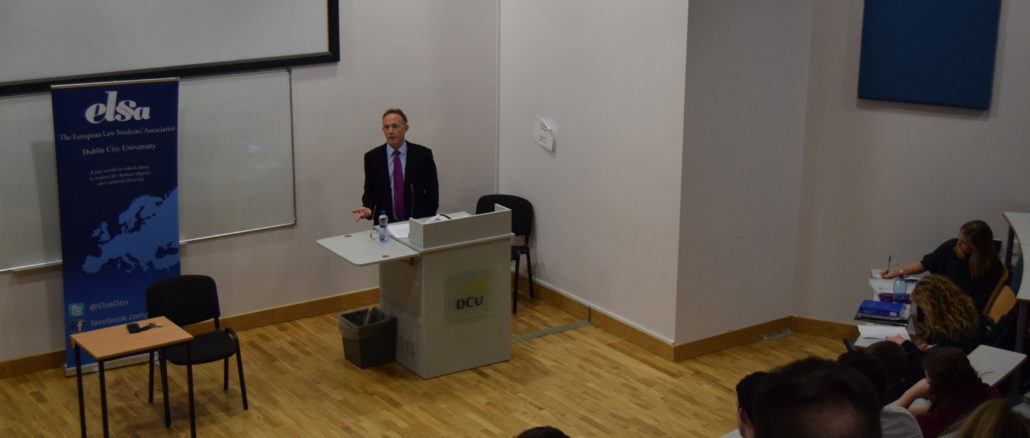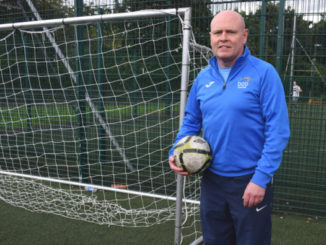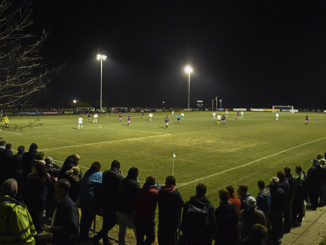
[dropcap]RTE[/dropcap] Crime Correspondent Paul Reynolds delivered a talk on Irish gangs in DCU, last Thursday.
Reynolds was invited to meet with members of the European Law Students Association (ELSA) to give a talk on Irish crime with particular interest on the Hutch-Kinahan feud, the Kinahan Cartel and the influence of Irish Gangs in Europe.
Reynolds used the trial of Trevor O’Neill, an innocent man shot dead in Spain, and the 9th murder caused by the Hutch-Kinahan feud as an example. He talked about the Spanish connection to Irish organised crime and how difficult pursuing these criminals can be when they leave Ireland.
According to Reynolds, the problem with international organised crime is that laws are not the same in every country in Europe and there are legal loopholes to be exploited by criminals. He believed that to stop this, EU laws must be harmonised and police in all countries must begin to work together.
This can already be seen with the European Union Directive 43 which allow police in Europe to share information on criminal assets to help catch criminals. Although Ireland has signed this directive the Government is yet to implement it.
Reynolds said that the seizing of assets was too cumbersome, referencing the Government’s inability to seize John Gilligan, a convicted drug dealer’s assets for the past twenty years.
The rise of Irish gangland crime has led to a public outcry, according to Reynolds, who commended the work of An Garda Síochána to cope with demand.
The Gardaí have uncovered multiple of the Kinahan’s drug trafficking schemes, have increased the amount of armed guards in North Dublin and increased the number of checkpoints across the city.
However, Reynolds did say that the lack of Gardaí at the Regency Hotel shooting was ludicrous as the event was being run by the Kinahan organisation and Hutch retaliation was always a possibility. It is the job of the police to know who the gangsters are said Reynolds.
Callum Lavery
Image Credit: Elsa McEvoy




Leave a Reply